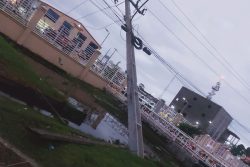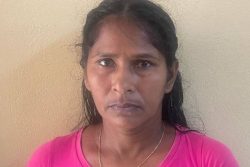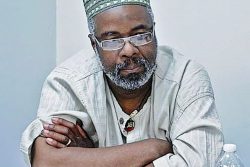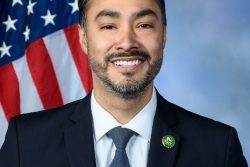Not long after Walter Rodney met his death in June 1980, I was at Castellani House, the president’s residence on Vlissengen Road, waiting to see Forbes Burnham, when Vice-President Desmond Hoyte entered the room. After the usual formal greetings and a brief period of silence, he inquired, ‘Henry, why are the brightest people sometimes so stupid?’
I was not certain where he was coming from and so murmured ‘I have no idea’. He then proceeded to tell me a story about his former headmaster, with whom he apparently had had a good relationship and thought quite clever. The gentleman had had an encounter with the law, was charged, found guilty and then, concerned about his good name, turned to his former pupil for help!
 Hoyte could not understand how such a sensible man could act so stupidly. What could he possibly do, now that the courts had pronounced? Why had he not come to him before, when options were available? Now, the most he could do was help his old headmaster to pay any fine, but the man appeared to be more concerned about his good name!
Hoyte could not understand how such a sensible man could act so stupidly. What could he possibly do, now that the courts had pronounced? Why had he not come to him before, when options were available? Now, the most he could do was help his old headmaster to pay any fine, but the man appeared to be more concerned about his good name!
Upon completion of that story a short pause ensued and Hoyte then asked, ‘Please tell me what a bright man like Walter Rodney, the leader of a movement that is not beyond the use of violence against the state, was doing personally collecting a walkie-talkie or whatever from dubious army personnel? Does he not have lieutenants?’ He shook his head and our conversation petered out.
Backing up somewhat, in 1979 I was principal of Kuru Kuru Cooperative College, where the documentation printing centre was headed by an ex-GDF officer, Compton Ifill, who had been shunted there after making disparaging remarks about the regime, and where WPA activist Ohene Koama was also employed until about mid 1979.
From being a staunch supporter of the PNC in the early seventies, Koama became disillusioned with PNC politics and began to quite vocally support the Working People’s Alliance (WPA). I was holidaying in London in November 1979 when I was awoken with the news that Koama had been shot and killed and that he had had illegal arms in his possession. I was taken aback, for I never thought for one moment that Koama was such a stalwart WPA member.
These two events, but particularly the conversation with Desmond Hoyte, perked my interest and since that time I have been attempting to piece together more than the basic story that Rodney was killed by the state. The views I am expressing here and will conclude next week were first broadly stated in the mid-1980s (Baber & Jeffrey (1986) Guyana, Politics, Economics and Society. London: Frances Pinter), and might usefully be restated given the controversial nature of the just concluded inquiry.
Please note that Hoyte did not claim that Rodney did not meet his death as a result of action taken by the state. In fact, what he said made this a distinct possibility. Hoyte’s position was that in the context of what he and his party were doing, Rodney was foolish to be personally collecting an illegal object from Gregory Smith. But like many things in life, stupidity depends upon one’s context.
After the burning down of the Office of the General Secretary and the Ministry of National Development in July 1979, for which Walter Rodney and some of his colleagues were arrested and imprisoned, at the PNC’s Third Biennial Congress in August 1979, Burnham made it clear that he was improving the security service and the surveillance of the WPA. “I readily concede that our state of physical alertness and security at the time was not as high as it ought to have been, but, as was the case at Pearl Harbour and Hitler’s invasion of the Soviet Union, they have awakened a sleeping giant who will not sleep again, who will not rest again until his enemies are crushed and utterly destroyed” (Towards the People’s Victory. 28/08/1979).
An experience that I had had also told me that Burnham had his contacts right in the very bosom of the WPA. I believe that it was in preparation for the above-mentioned congress that the Office of the General Secretary of the PNC sent a still in draft and limited circulated WPA document to Kuru Kuru for us to make copies. On the front page of the document a name was scratched out, but being naturally curious and knowing that we had the technology at Kuru Kuru, I wanted to know whose name it was.
In his person toolkit, Compton Ifill, who had been a journalist in England, had two little bottles, one containing a red and the other a green substance. When these substances were brushed on the name, they removed enough of the scratching out for us to see whose document it was. I am not claiming that the person whose name we saw had leaked the document to the PNC; a family member, colleague, employee, etc., could well have done so.
Only a few weeks ago, Hamilton Green enquired, “Did the Commission of Inquiry seek some explanation why Walter Rodney, after leaving a meeting of WPA officials, journeyed to Charlestown to collect this device from Mr. Gregory Smith, he did not seek the companionship of any of his top WPA officials, but took along his blood brother who was not known as a WPA or political activist?’ (Rodney’s death was a terrible accident. SN 10/03/2016)
The above events may help to answer Green’s query but also suggest that Rodney had been far from stupid, as Hoyte appeared to have thought. He suspected that the WPA was compromised and thus found himself in a catch-22 situation: dammed if you do and damned if you don’t. And revolutionary leader that he was, he did.
henryjeffrey@yahoo.com






